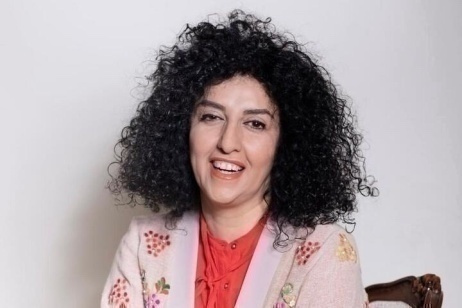
The news from the United States, with the success of Donald Trump – who seeks to build fences against Mexicans and Muslims –, from Germany with the success of the new rightwing and the refusal to accept migrants in Central-Eastern Europe, as well as the news about the power of attraction of fundamentalist movements in the Middle East, show us that today’s major problem is the difficulty of building dialogue and encounter opportunities among different cultures.
Today’s major issue is how to build a new universal thought able to enrich the human plurality and create bridges among the nations.
As a matter of fact, if we look at the history of genocide cases and totalitarianism, we realise that the denial of diversity in the others has always expressed itself through a kind of victimist discourse.
Many perpetrators of the worst crimes against the humanity have described themselves as victims, and in the name of their “self-defence” and purity they have managed to legitimise their right to kill.
Let’s consider the job of a gardener. He weeds his garden to make it more beautiful and blooming. He prunes the trees and trims weeds and nettles to create a new landscape. I have nothing against the gardeners who do their job well, but this idea of pruning the different ones in the name of the Good of humanity resurfaces ever and ever again in history, each times in different forms.
Let’s consider the Armenian Genocide. The Young Turkes eliminated the Armenians after depicting them as a threat to the existence of their nation as they had to face the crisis of their empire and the war against Russia and England. Every Armenian, as Armin Wegner noted, was a potential foe, and became a perilous border. This is why he or she had to be deported. Strange though it may seem, before deporting them, the Young Turks had gotten rid of all Istanbul dogs and had deported them, as well, to an island in the Bosphorus.
Yet also Lenin’s and Stalin’s Russia started the practice of Terror and the gulag on the one hand by defining itself as the representative of the victims of capitalism and imperialism, and on the other hand by justifying its worst crimes saying they were the consequence of capitalist encircling. Every dissident, before being shot, was tortured into confessing he was a spy of capitalism, Zionism and imperialism. Therefore he was at the same time a hypothetical external threat and an inner enemy.
Those who killed the so called “people enemies” this way, could justify that by presenting them as threats to their own existence. Hence the executioners turned themselves into potential victims.
And also Hitler’s Germany first presented itself as a victim of Jews, to then perpetrate their destruction. How Snyder in Black earth wrote so well, Jews,m presented as a Jewish international lobby looking to dominate the world, were the cosmopolitical threat to the German national identity. To keep their diversity and not be contaminated by the Jews, Germans had to act out the final solution.
But how can you kill people without feeling ashamed?
This was explained perhaps before everybody else did by Franz Kafka in his famous tale “The Metamorphosis”. He told how Gregor, who had gradually turned into an insect, saw his sister’s love wane as she showed indifference toward his fate. This is due to the fact that he is no more a human being, and his sister Grete Samsa does not feel responsible for him anymore, because she does not renard him anymore as a human. This is why Gregor’s poor remains are thrown away not by her, but by his housemaid with a stroke of the pen. Gregor to her is not worthy even a burial.
We are thus at the opposite of Antigone’s courage.
This, by the way, is what happened not only in the Holocaust, but also during genocide in Rwanda. Hutus were not ashamed to exterminate tutsis, because they considered them as worms and cockroaches. This is why they could kill their neighbour one after the other by hacking them to death. Not even the vicinity of victims, which often leads people to feel pity, prevented the involvement of people in genocide. Gas chambers had served the Nazis’ purpose to avert conscience crises between the Nazis, as that way the final solution was carried out on an industrial basis in the camps, far from the people’s sight. In Rwanda instead everything happened before the people’s eyes and people were persuaded to kill not human beings, but animals.
And, nowadays, too, in the name of the defence of diversity and the other from us, the Isis was born. IS promises a new heaven for Muslims and incites its followers to eliminate heretics and infidels. Also in this case, the theme of victimism resurfaces. To get back to the beginnings and not be conditioned by the West anymore, Muslims must claim their cultural estrangement from the world. Imposing the sharia as an absolute law and the holy war against the others – all this is justified to assert a sole God, higher than those of the other faiths.
The great novelty in this movement it that it has no shame whatsoever in claiming the legitimacy of terror and mass crimes, while the Turks and the Nazis tried to erase the traces of their genocidal atrocities. The suicidal terrorist feels entitled to murder people because he is keen on sacrificing his own life. His self-sacrifice shows the world his moral superiority.
In Europe, too fences are being built against migrants, in the name of the cultural and political diversity of Europe. So we see some governments and political groups fall short of the idea of solidarity and political citizenship open to foreigners and based not on origins or ethnicity, but on the compliance with laws. As George Steiner wittingly pointed out , today’s human being has not only roots, but also the opportunity to walk on his legs to chose where to live and where life is more convenient to him. This while today some forces would like to shut the individual inside his belonging.
So the principle of open citizenship seems to be questioned not only at the European level, but also domestically.
The secessionist nationalism of Catalans and Basques, says Savater, claims to turn cultural diversity into political fragmentation. To these people, the right to decide would belong only to territories, and individuals would have to escape wider identities. Is there a solution to all this?
Zyigmunt Bauman reminds us, in Of God and Man, of a part of Hannah Arendt’s teaching that can be of great help. First of all, teaching people to judge and observe the world from many different viewpoints, getting out of one’s own ego.
This is the way to acknowledge plurality and create a shared world overcoming rivalries and clashes. Why did Socrates, Arendt wrote, say he did not know when he talked with an Athenian? For a very simple reason: it is impossible to know in advance about the opinion (doxa) of an individual unless you talk to him or her humbly, as everybody has his or her peculiar worldview and can never be considered as a photocopy of anybody else. Every human being is unique, and until the world exists there will always be different opinion depending on the experiences of each person. This is the extraordinary plurality of men, which we should approach with curiousity and without prejudice. We cannot in fact make friends with somebody different from us, unless we show first of all a sincere wish to know him or well in depth.
This is the spark of friendship and any possible relation with the others.
Then though Socrates, never ex pressing his opinion, started to ask restless questions, as he wanted his interlocutor to question himself the validity of his statements. Socrate’s alchemy was that of compelling the other to consider the world from different viewpoints and a new perspective, which stemmed from the appraisal of the others’ opinions. This way the individual’s subjectivity, without losing its specificity, would be put in relation with the human world, thus becoming more universal.
This is a greatly topical lesson, Arendt keeps reminding us, referring to the idea of friendship worked out by Lessing during German Enlightenment. Friendship, for the author of Nathan the wiseman, was the symbol of dialogue between different men and the moral compass to overcome barriers in the name of our common humanity.
Lessing had taught that it was a great source of happiness to discover there could not be any sole truth in the human world, because such impossibility was no handicap, but rather the requisite for an endless dialogue between men that would never be concluded over centuries and generations.
If a unique truth had existed, this would have meant the end of the taste of discussing for the sake of dialogue, deciding the end of humanity.
This is why men had to accept their own partiality in the dialogue with the others, and humbly listen to divergent opinions in an endless pathway. where they could see an always relative, never definitive truth.
The acknowledgement of common weaknesses was one of the key elements of human solidarity.






